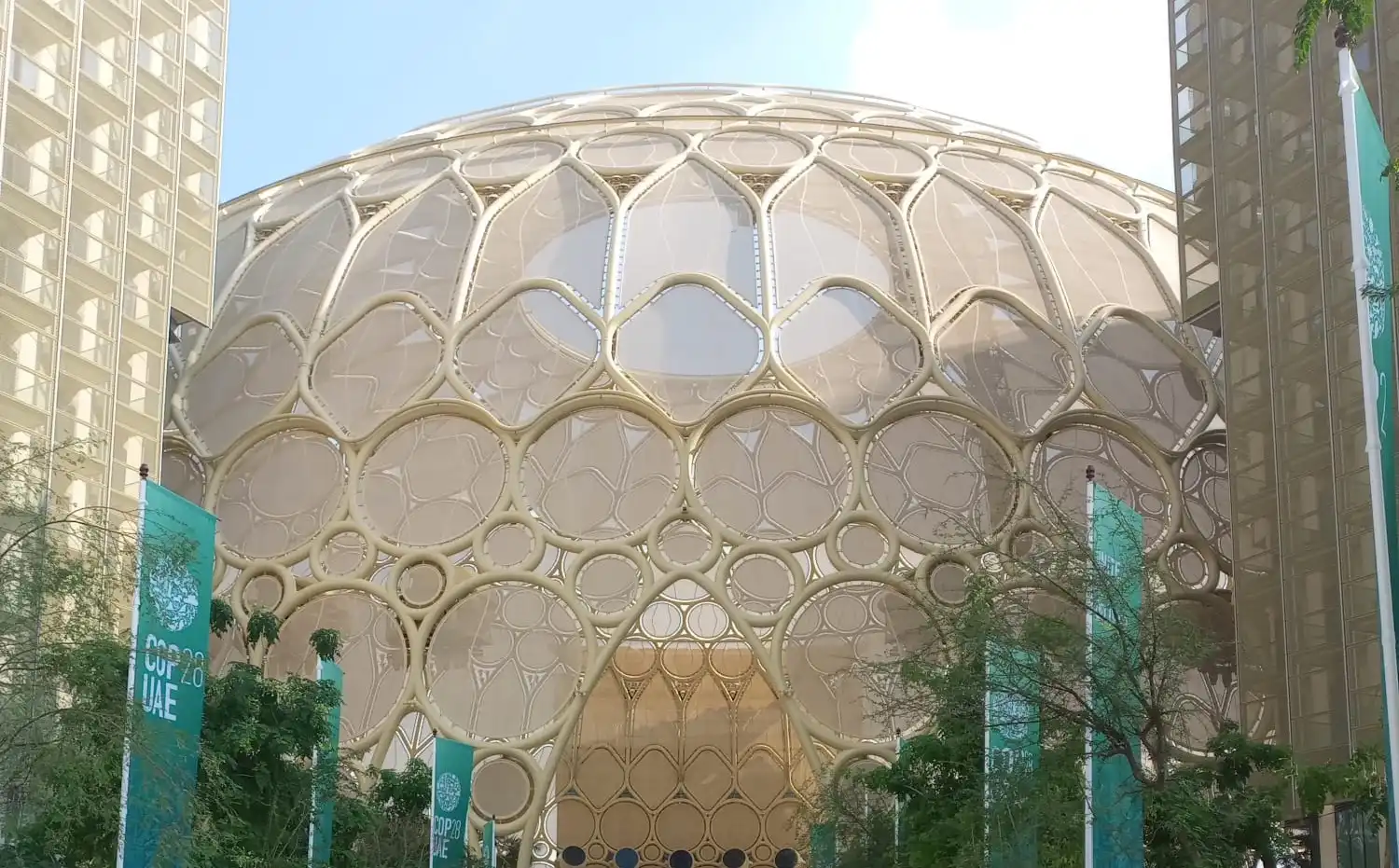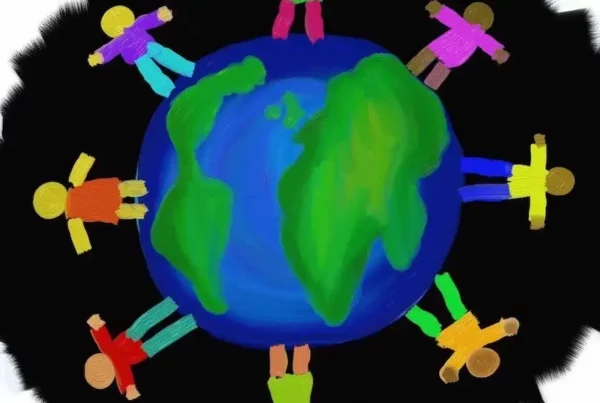The Global Plant Council, represented by board member Prof KC Bansal and Chief Communications Officer Isabel Mendoza recently had the privilege of attending the UN Conference on Climate Change held in Dubai from 8th to 12th December 2023. Hosted by UNFCCC, this conference brought together policymakers, observers, experts, researchers, and indigenous nations from around the globe to address the most critical issue of our times—climate change. But first…
What was COP 28?
COP28 denotes the 28th Conference of the Parties to the UN Framework Convention on Climate Change, Nov 20-Dec 12, 2023, featuring the participation of 198 parties, including the European Union, the United States of America, China and the Russian Federation. Hosted by the United Arab Emirates after succeeding Egypt, COP28 served as a crucial global platform for leaders to address climate change and related issues.
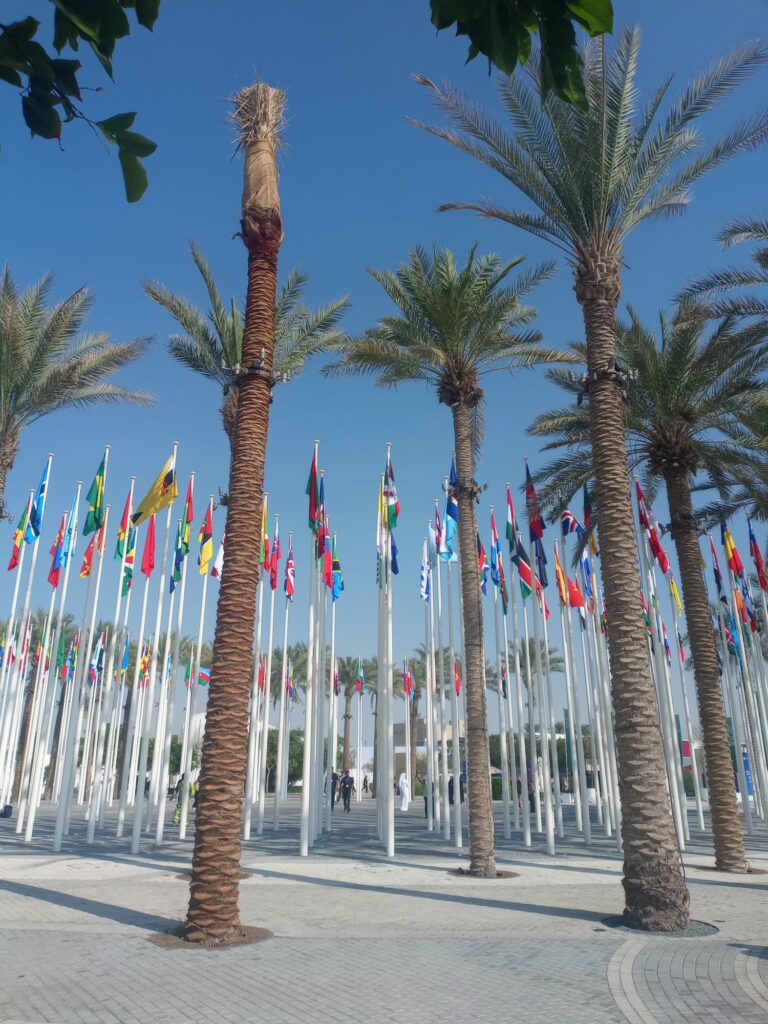
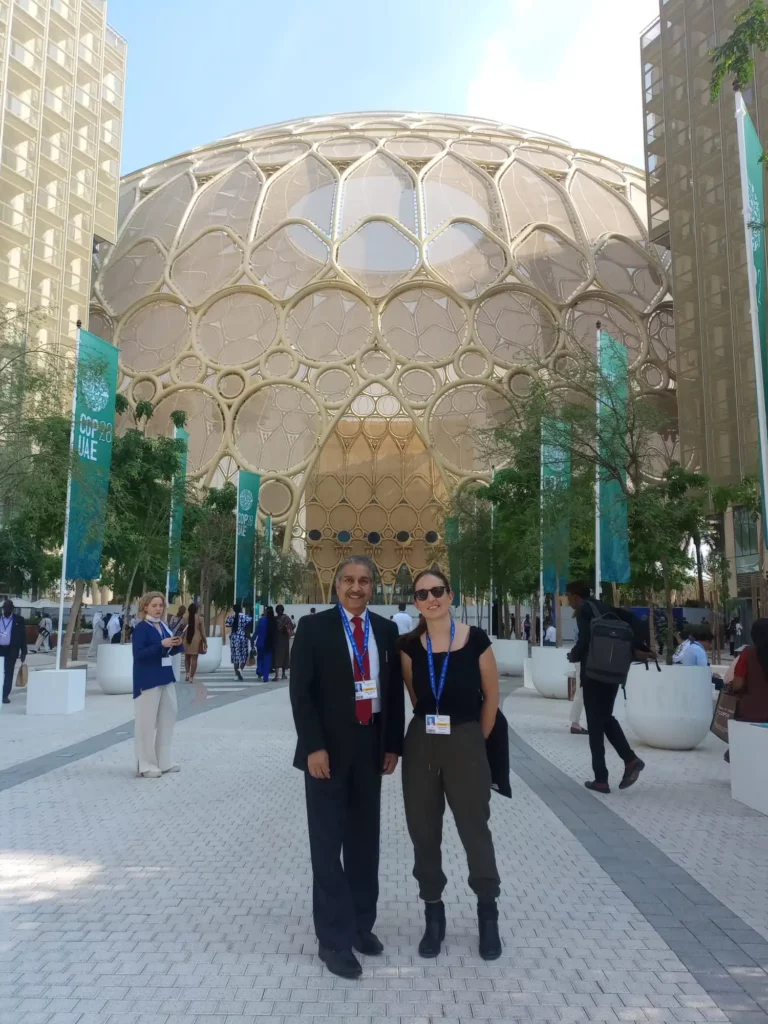
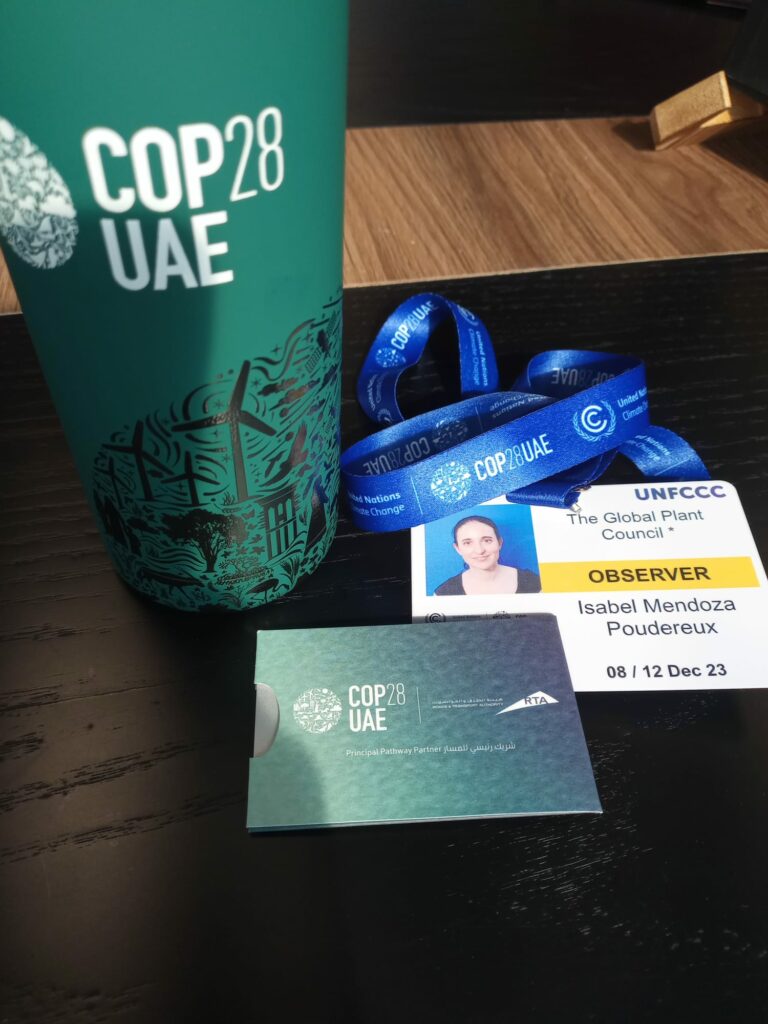
The Global Plant Council at COP28
We arrived to the COP28 on the 8th of December, for the second half of the conference. After picking our badges and welcome packages, we proceed to get acquittanced with the venue (which was huge!) trying to learn fast where the plenaries where taking place, how to get in, how to get in contact with policy makers, where the stakeholders and observers met during the breaks, how to recognize the different profiles of people by the color cow their badges (parties, observers, media)…
The experience proved to be transformative for our team. COP28 provided a platform for the exchange of collaborative initiatives aimed at addressing the challenges posed by our changing climate through plant science and by plant scientists.
Throughout the conference, the significance of agriculture and plant science, and the need for resilient food systems in climate action were recurring themes. Keynote speakers and panelists underscored the vital role that scientific advancements play in formulating effective strategies to mitigate and adapt to the impacts of climate change, including plant science advances. The diverse range of sessions, spanning from research presentations to policy sessions, offered valuable insights into the latest developments in climate science and how they could and is being implemented by policymakers in their policies.
One of the highlights of our experience was the opportunity to engage with fellow delegates and experts during the networking sessions. The atmosphere at COP28 facilitated discussions and laid the groundwork for potential future collaborations. Name badges were a constant reminder of the diverse backgrounds and institutions present. Attending COP plenaries and scientific events by other organizations has been one of our highlights.
As delegates, we returned home armed with a wealth of experience that will aid The Global Plant Council and its members in the future. The connections made have already begun to bear fruit as we explore collaborative projects.
Looking towards the future, we are more determined than ever to contribute to the global effort to tackle climate change through the power of plant science.
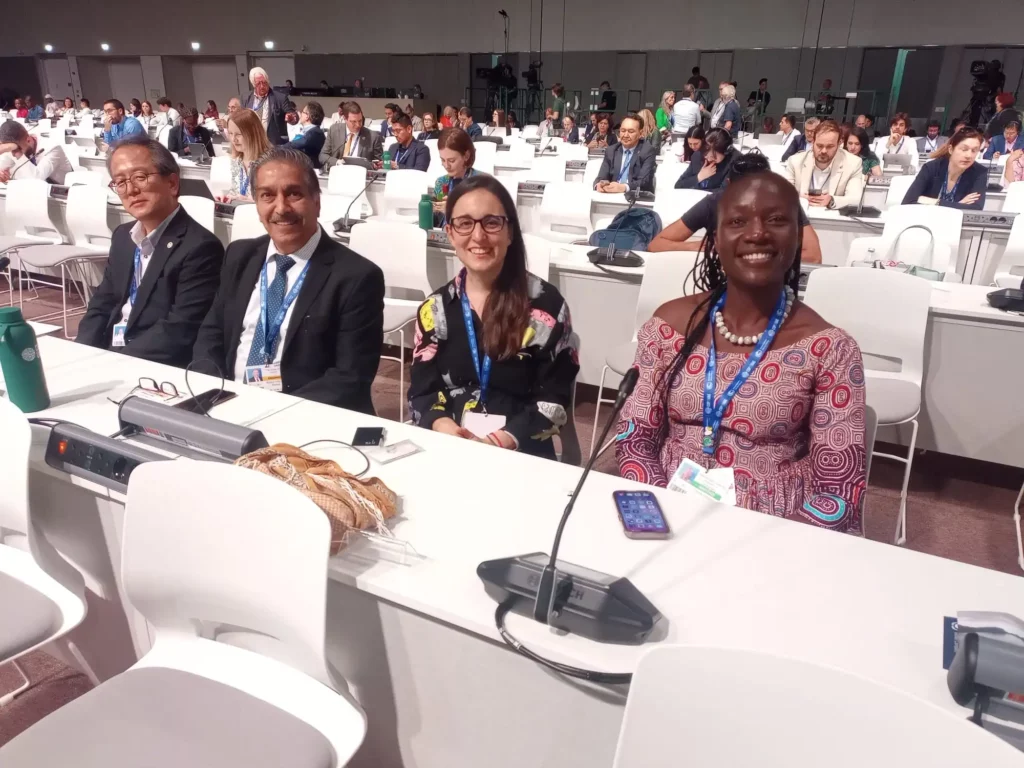
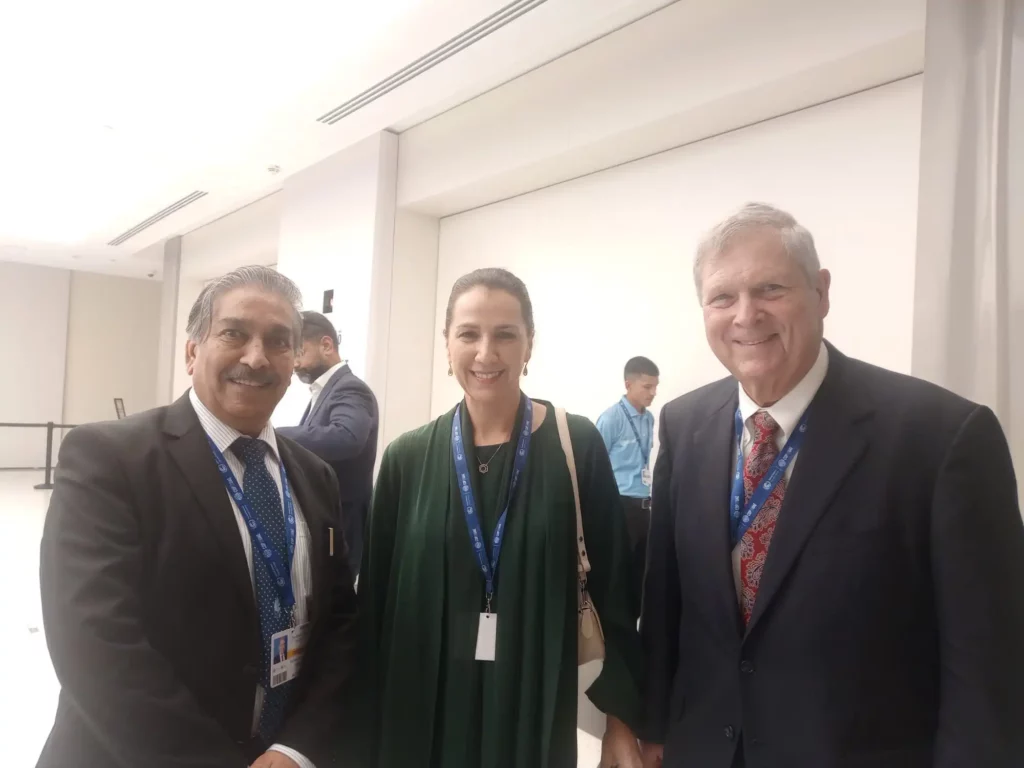
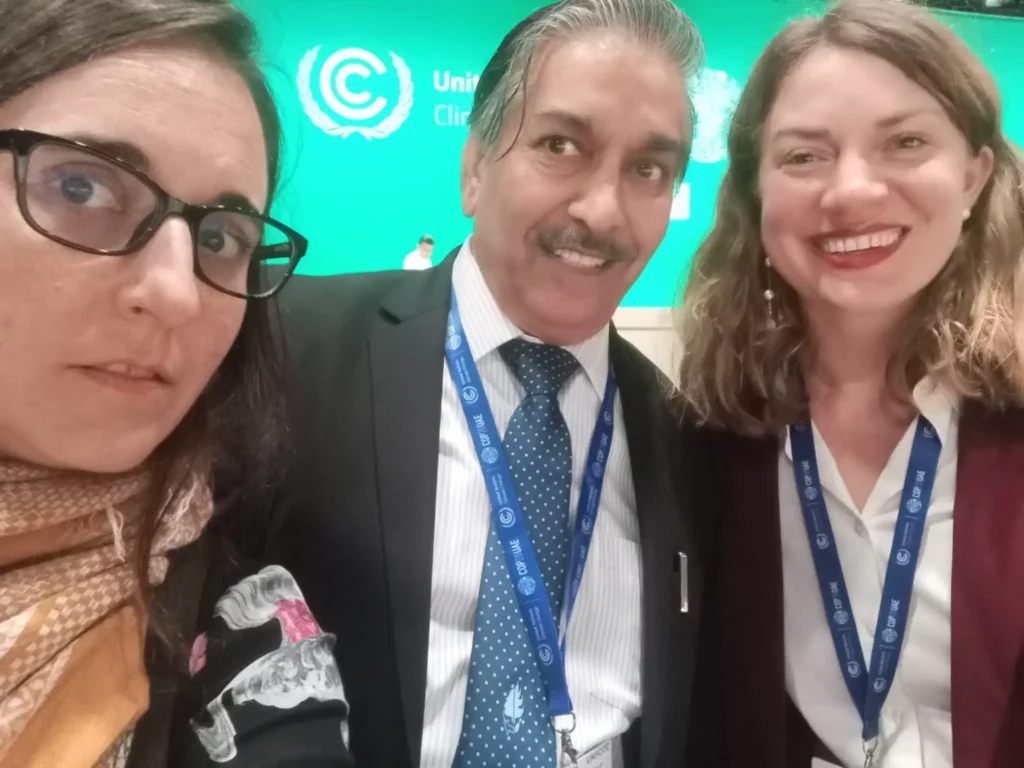
COP28 UAE Declaration on Sustainable Agriculture
In addition, this marks the first COP where a declaration on agriculture has been presented, signed by 134 parties (=countries), the “COP28 UAE Declaration on Sustainable Agriculture, Resilient Food Systems, and Climate Action,” whose goals and commitments can be summarized as follows:
In simple terms, the declaration expresses a commitment to work together quickly on several important goals related to climate change and agriculture. These goals include:
- Helping Farmers and Food Producers: Providing support and resources to help farmers and others who produce our food adapt to and withstand the impacts of climate change. This includes providing financial aid, technical assistance, and tools like early warning systems. The aim is to ensure sustainable food production while also taking care of the environment.
- Ensuring Food Security and Nutrition: Making sure everyone has enough to eat and receives proper nutrition. This involves creating safety nets, programs like school feeding, and supporting research and innovation. It also focuses on the specific needs of different groups, such as women, children, indigenous peoples, small farmers, and people with disabilities.
- Protecting Jobs in Agriculture: Supporting workers in agriculture, especially women and young people, whose jobs are at risk due to climate change. The goal is to maintain fair and inclusive employment by finding ways to increase, adapt, and diversify incomes.
- Managing Water Resources: Taking steps to better manage water use in agriculture to ensure sustainability and prevent negative impacts on communities that rely on water for farming and food production.
- Environmental Benefits: Maximizing the positive effects on the climate and environment while minimizing harm. This includes conserving and restoring land and ecosystems, improving soil health and biodiversity, and shifting towards more sustainable ways of producing and consuming food. This also involves reducing food waste and promoting sustainable practices in the production of aquatic (marine) foods.
In their collective commitment to addressing climate change, the involved parties pledge to integrate agriculture and food systems into their respective climate action plans, tailoring approaches to national contexts. By 2025, their goals encompass transparent engagement, policy revisions to enhance resilience and reduce emissions, increased financial access, rapid adoption of innovative practices, and the strengthening of the multilateral trading system. Emphasizing collaboration across ministries and with stakeholders, they plan regular progress reviews, culminating in a comprehensive assessment at COP29 next year, with an eye toward setting the course for 2025 and beyond.
Conclusions
Participating in COP28 and engaging in the conference has been a remarkable opportunity for The Global Plant Council team, to observe the perspectives shared by numerous delegates, including those from smaller nations and observer organizations, as they articulate their thoughts during the plenary sessions. Experiencing the collective dedication towards the shared objective of safeguarding our planet was both thrilling and humbling.
About the author: Dr. Isabel Mendoza is the GPC Chief Communications Officer. She holds a PhD in (Plant) Biotechnology.
About The Global Plant Council: we are an umbrella organization of plant, crop, agricultural, and environmental science societies and organizations across the globe representing thousands of experts.


